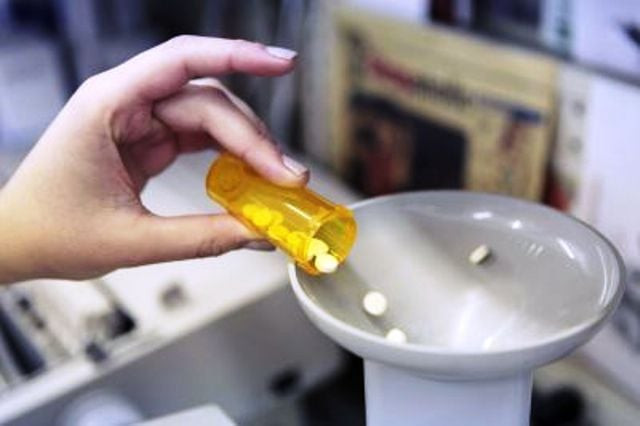Baqai Medical University’s pharmacy workshop helps providers stay up-to-date
The seminar is part of the undergraduate programme that takes place at the end of the year.

Baqai Medical University’s pharmacy workshop helps providers stay up-to-date
They have been focusing on this angle of healthcare for three years at an annual ‘Live Hospital Pharmacy’ workshop. The event coordinator and course teacher, Dr Rana Asif, explained that this is the last part of the undergraduate course which takes place at the end of the year and is an important learning curve for the students. The workshop takes place at the pharmacy cafeteria of the college and is an attempt to taking an innovative approach to how pharmacies should work across the country.
“Not too many hospitals are up to date with the advancements made in pharmacies and consist of undertrained staff who apply old methods such as keeping registers,” said Dr Asif. “Even students from abroad have come to study the course and attend this event which makes us very proud.” This workshop will make people aware of how important it is to have a good pharmacy setup and not rely on ‘suggestions’ from the man behind the counter.
Seven stalls showed how a pharmacy service can be updated and made efficient. At the Gleam Pharmacy counter, for example, a second-year student told The Express Tribune that their idea of the air ambulatory service, including a pharmacy, doctor and a nurse on board, would be useful in incidents such as the recent Baldia factory fire.
Another time-saving project was the ‘computer order physician entry system’ which, when fed a prescription, would dispense the relevant medicines to the patient at the click of a button. “Of course we would have a doctor verify if those are the correct medicines before we dispense them, but it would save the patient a lot of time and lessen the workload too,” said the student.
The chief guest at the seminar was Dr Zahida Baqai, the co-founder of the Baqai Medical College. She felt that these types of events would raise the profile of pharmacies, which she sees as one of the fastest-growing disciplines in medicine. “There is always a risk in receiving medicines over the counter because you can get anything with or without a prescription,” she said. “The person dispensing it therefore needs to have adequate knowledge of what medicine is being given and that’s where the concept of a live pharmacy really comes into effect.”
Other innovations include the pneumatic pump to transport medicine from one end of a hospital to another and a blind counseling chart to help those who are visually impaired take the correct medicine and dosage. Indeed, the concept of having a computerised and efficient system was the highlight of the seminar.
Most of these ideas are applied in countries such as Saudi Arabia and the US but they have yet to take on in Pakistan. “Pharmacies are often neglected in this part of the world,” said the vice principal of the Baqai Dental College, Dr Talha M Siddiqui. “But, we as doctors must do something to bring about a change - not because it doesn’t happen enough, but because it is our duty.”
The event attracted representatives from several institutions, including the army, Karachi University and Sindh Medical University. “This workshop and training helps us on a personal level,” said Salman Usman, a pharmacist at the Aga Khan University Hospital, who attended. Army officers identified as Mumtaz, Talha and Faisal by their name tags made the rounds dilligently taking notes. “People from different places come to take a look at the set-up and the workshop so they can come up with their own ideas of what can be added to their own pharmacies,” explained the event’s coordinator, Dr Rana Asif.
Published in The Express Tribune, October 11th, 2012.



















COMMENTS
Comments are moderated and generally will be posted if they are on-topic and not abusive.
For more information, please see our Comments FAQ